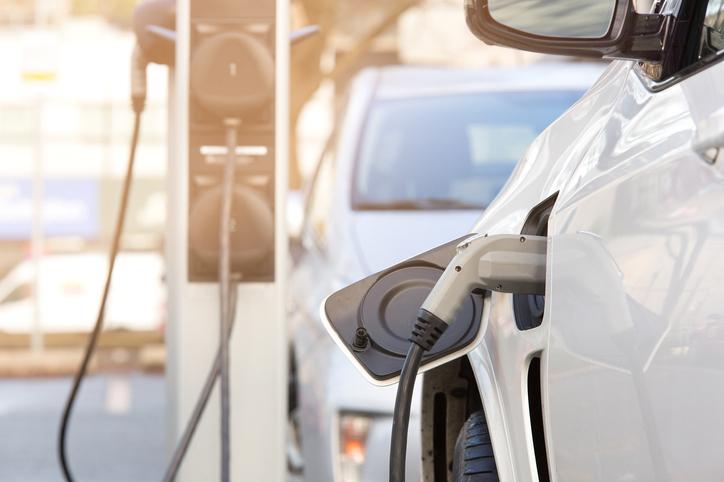

(844) - 444-4444

Electric cars may cause more damage in collisions than conventional cars, according to the German-language reports of a study by the insurance company AXA Switzerland, as written about in Streetsblog NYC.
This can be attributed to electric vehicles’ greater weight and quicker acceleration, according to the report. The Swiss insurer should know what it’s talking about; AXA crashed electric cars to see how they would fare in collisions.
The increased weight of electronic vehicles could lead to more pedestrian deaths, according to the study.
Electric cars accelerate faster than conventional cars because their engines are more efficient, according to an article in Streets Blog NYC, which examined the study.
So quick to accelerate are electric cars, in fact, drivers experience an “overtapping effect,” whereby they push too hard on the accelerator, causing the vehicle to jerk forward. AXA predicts overtapping may be a factor in “increased claims frequency” for high-performance electric cars.
Under normal conditions, a Tesla can accelerate from zero to 60 mph in about 2.5 seconds, according to MotorTrend.
If you’re new to driving an electric vehicle, quick acceleration can potentially surprise you when you’re used to operating a gas- or diesel-powered car, leading to more accidents.
Generally speaking, electric cars can be heavier because they have more batteries, a reinforced framework, and protective armor around the battery. The added weight doesn’t just slow down an EV; it also makes an electric car a formidable force in a collision.
The AXA Switzerland study reports that new cars weigh about 25 percent more than vehicles made 20 years ago. A growing body of research suggests that today’s oversized vehicles are deadlier to everyone not inside them, including the drivers and passengers of smaller cars, anyone riding bicycles or motorcycles, and pedestrians. SUVs and trucks are deadlier to pedestrians. According to the Governors Highway Safety Association, pedestrian fatalities involving SUVS increased at a faster rate than pedestrian fatalities involving a passenger car.
While bigger vehicles can be safer for drivers, they’re more dangerous for anyone not inside them.
Battery fires can be a risk when driving an electric car. The battery is at the bottom of an electric car, so “if the bottom plate of an electric vehicle is badly hit and the protection around the batteries is also damaged, they can catch fire,” according to The Brussels Times.
Many manufacturers recently recalled electric vehicles due to fire risks. For example, General Motors found that the batteries in the Chevrolet Bolt were defective. The $800 million recall impacted 69,000 of the cars globally, including 51,000 in the United States, according to CNBC.
Along with battery fire risks, there is also research that supports the conclusion that cold weather conditions can temporarily reduce electric vehicle (EV) battery range. AAA research found that colder temperatures can cut such range in half.
The National Highway Traffic Safety Administration (NHTSA) released car-accident data for cars with automated driving systems (ADS) and advanced driver assistance systems (ADAS). They discovered there were 42,915 fatalities from car accidents in 2021. This is a 10.5 percent jump from 2020 and the highest number reported since 2005.
Additionally, the Insurance Institute for Highway Safety, when comparing electric and conventional versions of nine vehicles sold from 2011 to 2019 by property damage liability, collision, and injury insurance claims, found that the injury rates tied to electric cars were more than 40 percent lower than those of gas-fueled vehicles, according to an article in Consumer Reports.
Same safety standards as conventional vehicles
It’s worth noting that electric vehicles are required to meet the same safety standards as conventional vehicles. In fact, all light-duty cars and trucks sold in the United States must meet the Federal Motor Vehicle Safety Standards. To meet these standards, gas-operated and electric vehicles undergo a long, extensive testing process.
Additionally, electric vehicle battery packs must pass their round of tests. Battery packs must meet testing standards that subject batteries to conditions such as “overcharge, vibration, extreme temperatures, short circuit, humidity, fire, collision, and water immersion,” according to the U.S. Department of Energy. To learn more about the maintenance and safety of electric vehicles, check out their website here.
If you were injured in an accident involving any kind of motor vehicle, the experienced personal-injury attorneys at William Mattar P.C. can protect your rights, advocate for you to receive maximum compensation, and guide you through your next steps as you recover. Don’t hesitate to call us, at 844-444-4444, or fill out the form on our website requesting a free initial consultation.





